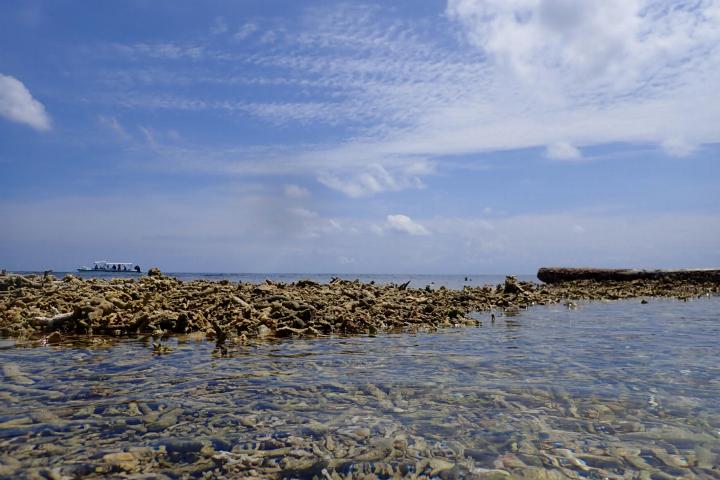As part of the 4D-REEF project, my research focuses on looking at how coral reefs have grown and changed throughout the Holocene. To do this we will collect sediment cores from reefs in Makassar, Indonesia. These cores will be able to tell us not only how fast the reef has grown over certain time periods, but can also give insight to what the reef looked like throughout its history. This will allow us to compare the reef before human impact to modern reefs, and help us to predict their future.
Keyword
Accretion rates, Reef cores, Turbid reefs, Palaeoecology, Carbonate production, Geomorphology
ResearchInterests
I am a palaeobiologist/geologist by trade. You may be wondering how someone who used to work on dinosaurs ended up looking at coral reefs. This is largely due to my love of the ocean equaling my interest in ancient life.
After completing my bachelor's degree, I ended up working for the Smithsonian in Panama. Here I came to learn how to apply my palaeobiology skills to much more recent animals from reef cores of only 3000 years old, or younger. I was also fortunate enough to work on many projects focusing on modern coral reef ecology. After completing a master's degree on taphonomy (or how things are preserved in the fossil record), I wanted to get back to my passion, and that is examining the history of our coral reefs. Working with 4D-REEF will allow me to compare past and present reefs, so we can better understand and help our coral reefs.


CurrentTopics
A selection of the topics I am working on currently.

4D-REEF Research Programme

(Paleo)ecology of turbid reef ecosystems

Impact of urbanisation on coral reef ecosystems
KeyPublications
- Cannon, A. L., Hynes, M. G., Brandt, M., Wold, C., O'Dea, A., Altieri, A. H., & Smith, J. E. (2022). Simulated green turtle grazing reduces seagrass productivity and alters benthic community structure while triggering further disturbance by feeding stingrays. Caribbean Journal of Science, 52(2), 373-388. https://doi.org/10.18475/cjos.v52i2.a16
- Łukowiak M, Cramer KL, Madzia D, Hynes MG, Norris RD, O’Dea A (2018) Historical change in a Caribbean reef sponge community and long-term loss of sponge predators. Mar Ecol Prog Ser 601:127-137. doi: 10.3354/meps12694
Teaching Activities
Biodiversity II - University of Leiden
- Coral practicum
- Sponge practicum